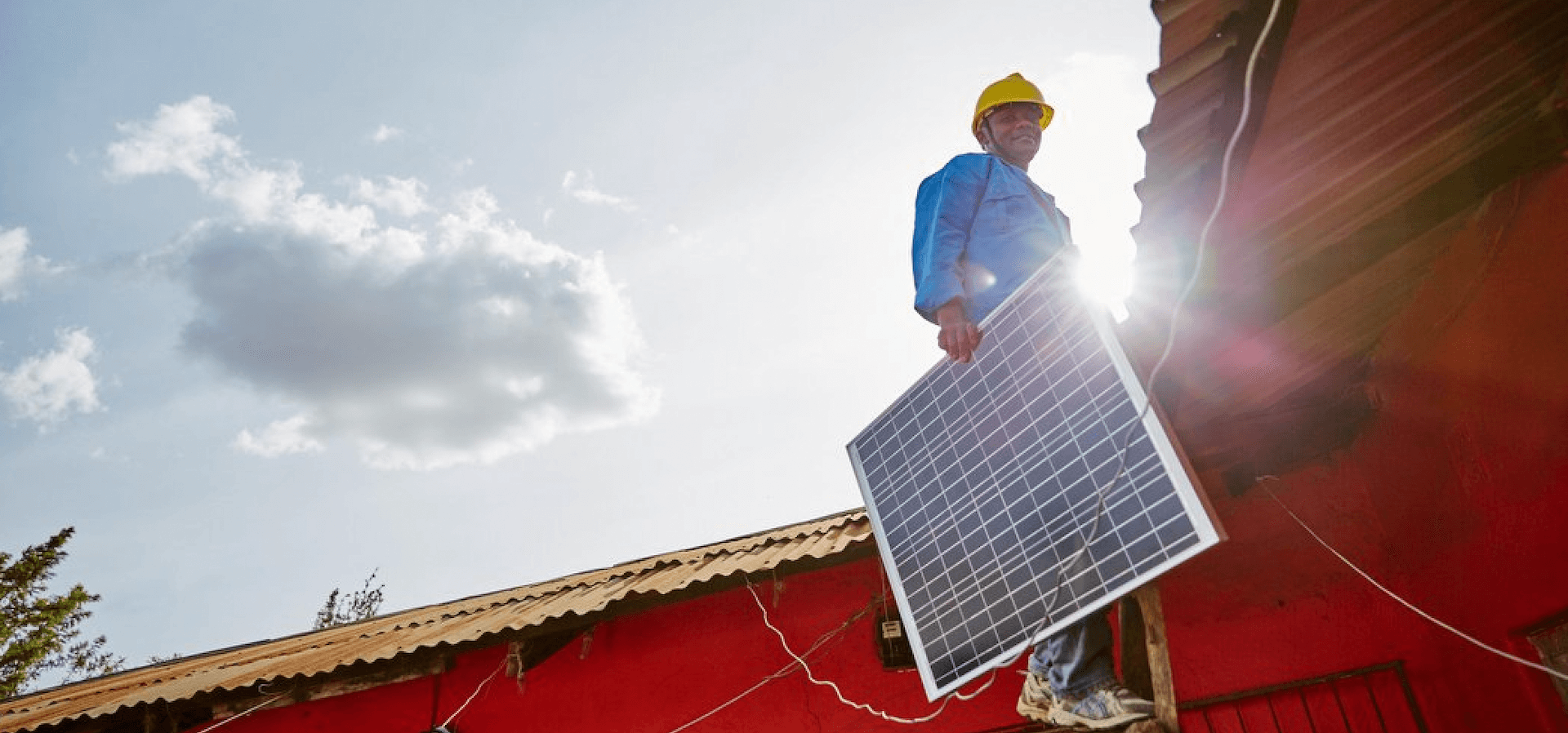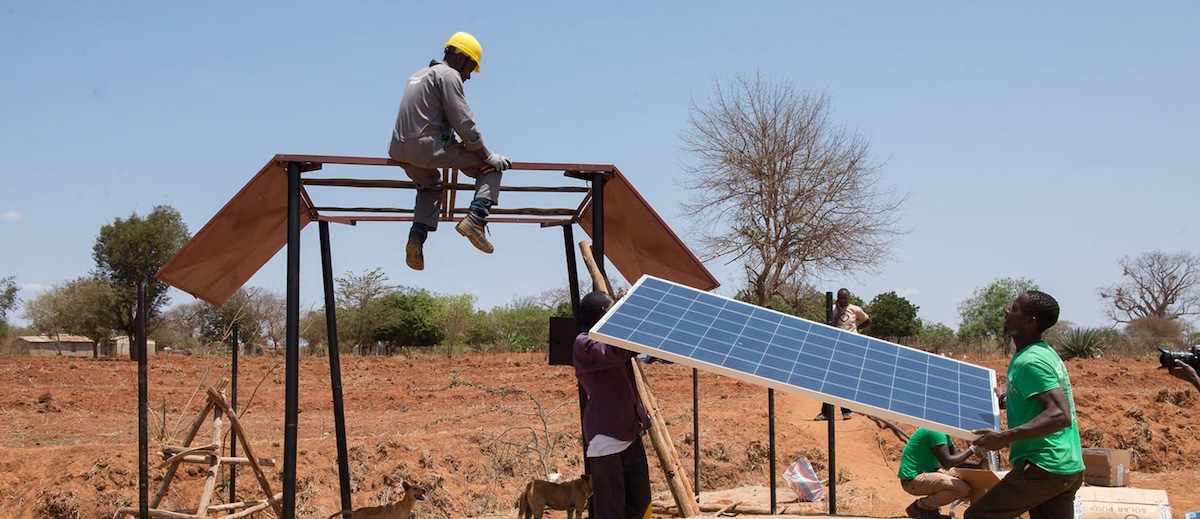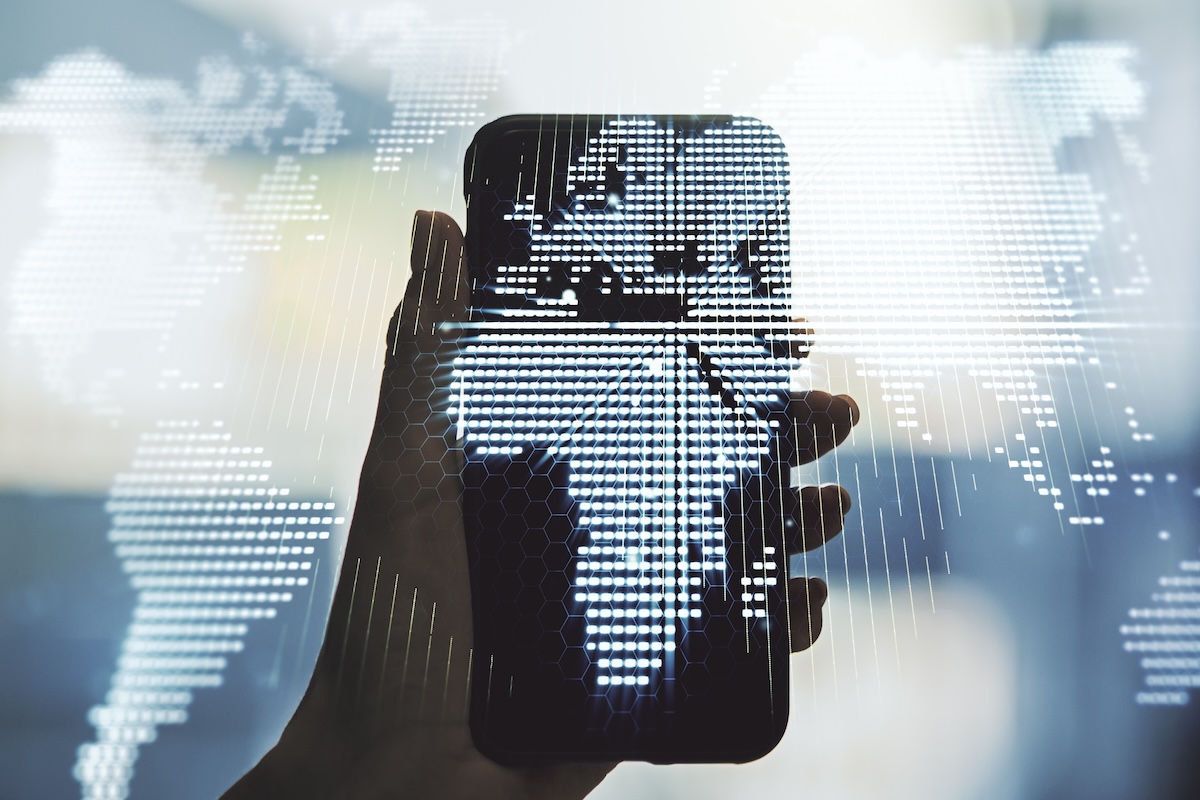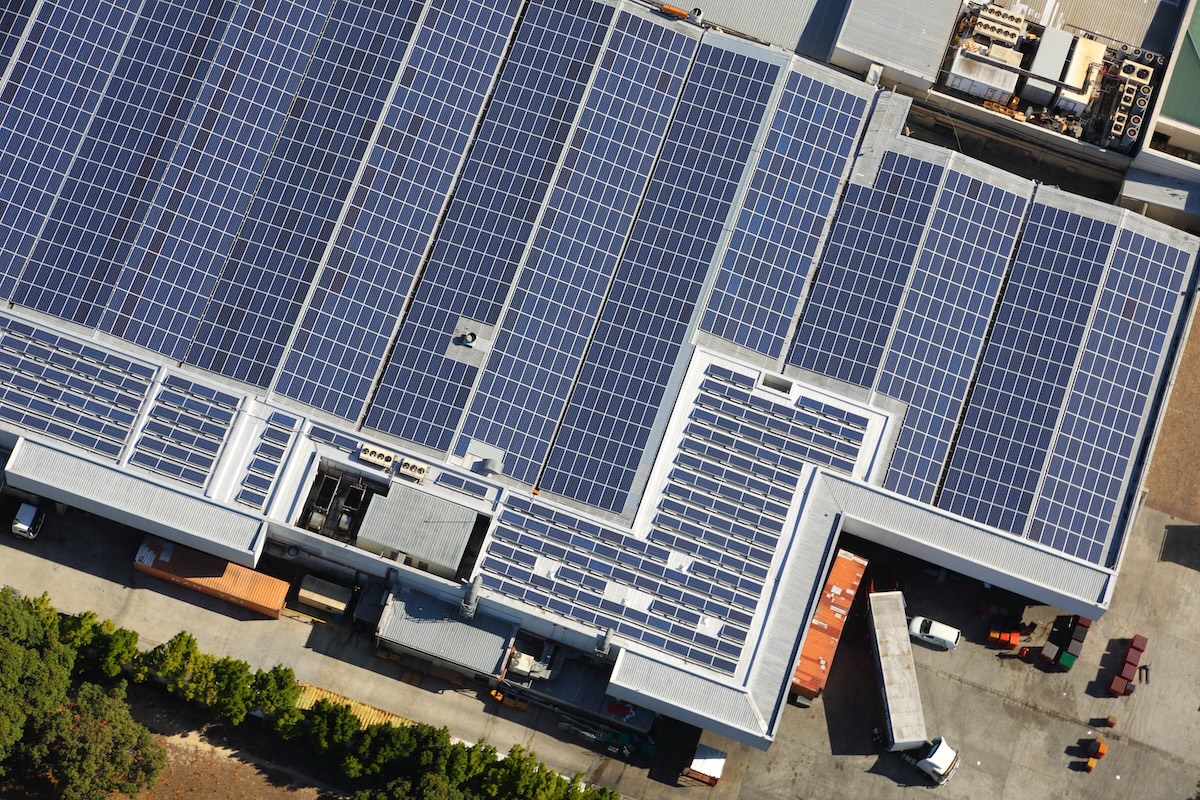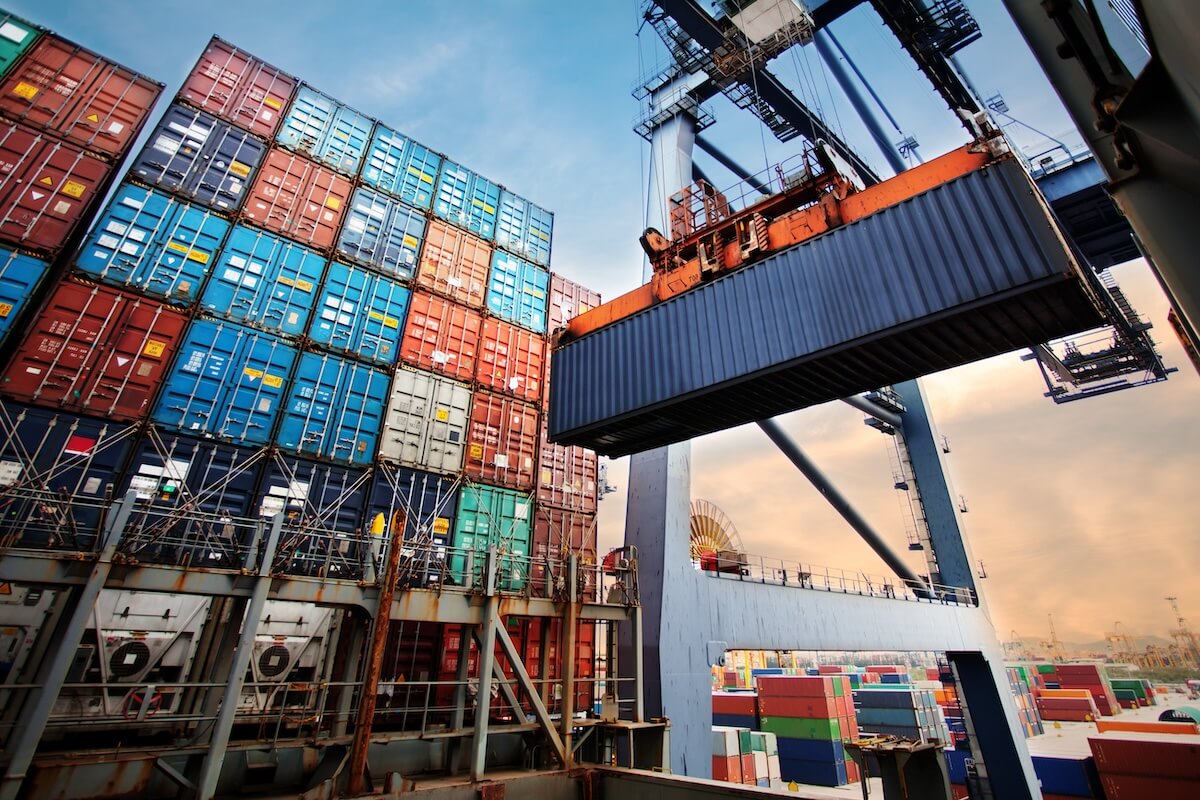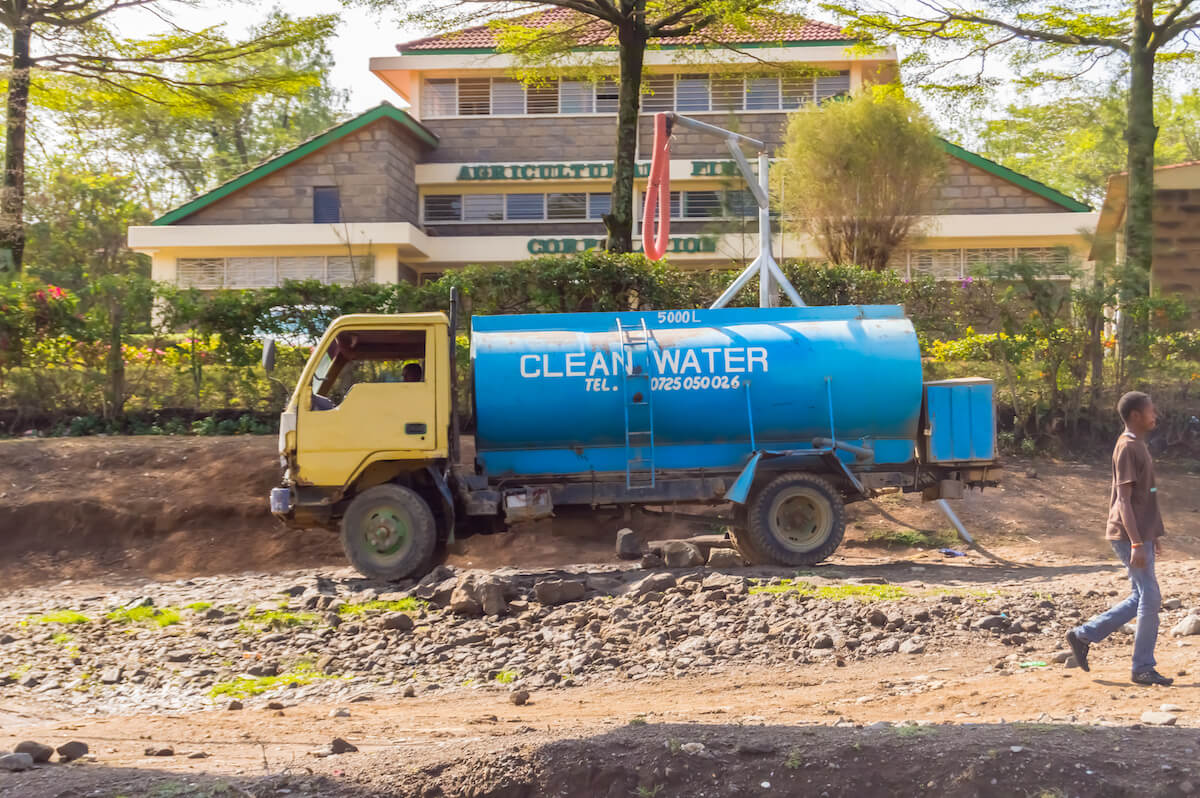ImpactAlpha, June 15 – For a decade, access to affordable, reliable and modern energy increased by roughly 100 million people a year – until the global Covid-19 pandemic.
Since then, the number of people who live without any access to electricity has actually increased, to more than 730 million people worldwide. A third of the world’s population lacks reliable energy.
The reversal of progress on Sustainable Development Goal No. 7 has been accompanied by a shakeout in the once-frothy global off-grid solar industry, which has attracted more than $3 billion in capital. The sector attracted $746 million in investment last year, up 63% from 2021, according to the Global Off-Grid Lighting Association. That surge was largely driven by Sun King’s equity raise of $330 million last year.
Sun King, formerly known as Greenlight Planet, is one of a handful of winners, so far, in a market that has consolidated with acquisitions, pivots and shutdowns. “Survivors with specialized offerings may now be in position to ride post-pandemic growth,” ImpactAlpha predicted back in 2020.
Those survivors, including Zola Electric and M-KOPA, as well as d.light, Bboxx and others, are pushing ahead with new strategies to connect people to reliable energy services and a growing number of commercial banks and investors are rallying behind them. The capital shift isn’t yet moving enough capital to close the global energy access gap, which requires annual investment of about $2.3 billion, according to the International Renewable Energy Agency. But it does signify maturity in a sector that not long ago depended on philanthropy and deep impact-first capital.
“Everyone always thought of energy access as solar torches and small home systems, and that’s not the case,” Zola Electric’s Bill Lenihan tells ImpactAlpha. “You’re seeing institutional capital and these big strategic utility and telecom companies enter the market because they’re seeing that there’s a problem, and it’s big enough for them to be interested.”
In a series of interviews with ImpactAlpha, the co-founders and CEOs of Zola, Sun King and M-KOPA peer into the future of off-grid energy access in Africa, and recount their companies’ diverging approaches to the challenge.
Zola doubles-down on tech design
Like many of Africa’s early off-grid solar players, Zola – formerly Off-Grid Electric – got its start with the kind of small-scale household solar products Lenihan was referring to. Launched in Tanzania in 2012, the company designed and sold solar home systems to power a cell phone and a couple of lights for about $6 per month. That was about what families would pay for a poorer quality alternative: kerosene.
When Lenihan joined Zola in 2015, the falling costs of solar panels and other components was driving adoption of off-grid energy. Investors took notice.
Zola that year raised about $70 million from the Packard Foundation, Calvert Impact, DBL Partners, Ceniarth and others. The funding mix reflected the sector’s reliance at that point on catalytic philanthropic and high-impact capital, not commercial capital. Still, it was a significant amount of funding for a company selling unfamiliar products to rural customers with no credit history.
Zola has pivoted. It has moved almost entirely out of direct sales to become a technology partner to other off-grid electricity companies and utilities. It inked a deal with French utility EDF in Côte d’Ivoire. Nigerian oil and gas company OVH Energy is using Zola’s technology to provide urban residents and businesses with clean back-up power supplies. South African mobile telecom provider Econet Group is partnering with Zola to set up mini-grids in a country with deteriorating national electricity services.
“From the beginning we always believed our core competency was on the technology side,” recalls Lenihan. “In the beginning, if you wanted to try to solve energy inequality, you had to be a technology provider, you had to do distribution, and you had to do financing because there weren’t other companies to do it. I don’t think anyone wanted to do everything. They just had to.”
The company now offers three products to meet the needs of customers from low-income, first-time energy users to middle-class, urban households, to commercial users. Zola Flex, a small charging system, caters to smaller and lower-income customers, whereas the larger Infinity system is designed for energy operators looking to provide customers with continuous energy. Zola launched an intermediate system, the Flex Max, in January.
Zola has also gradually “unplugged” the distribution, financing and other parts of its business that it “was not really built to do and not good at managing under one umbrella,” Lenihan explains. “If I can train up companies that already exist in these markets with our technology, that’s way more rapidly and efficiently scalable.”
Zola’s technology has gotten more sophisticated. But, true to its origins, Zola hasn’t shied away from the neediest markets and customers. Last year, it signed a partnership with Haiti Green Solutions to deliver power to Haiti, a country ravaged by natural, political and economic disasters. It has also launched in Lebanon, which is suffering a financial and economic crisis among the most severe in recent history, according to the World Bank. The collapse of its state power grid nearly two years ago is driving more Lebanese families into poverty.
“If you do not have reliable, affordable energy, a country cannot pull itself out of a depression,” Lenihan says.
Sun King draws commercial banks to rural customers
Sun King is one of the oldest players in Africa’s off-grid solar sector. As Greenlight Planet, the company started in India in 2007 designing small lanterns and home solar products—much like Zola—then expanded to Kenya. Sun King has largely stuck to knitting, selling its products on a pay-as-you-go basis to five million households via thousands of field agents.
“A typical customer for Sun King is housed in a rural area, has no connection to the electric grid, and earns $2 to $8 per day,” Sun King’s co-founder Anish Thakkar tells ImpactAlpha.
Its growth model is based on helping first-time energy users climb the energy access ladder by financing additions to small systems as customers’ incomes and energy needs grow.
Products like Sun King’s make up a shrinking share of off-grid renewable investments. Yet Sun King is among a handful of off-grid energy firms in pulling capital in. Last April, It raised a $260 million Series D equity round, led by General Atlantic’s climate investing arm, BeyondNetZero, last year. Leapfrog later invested another $70 million in an extension of the round.
And last month, Sun King raised $130 million from Citi, Stanbic Bank of Kenya, and British International Investment by securitizing current and future cash flows from its customers.
Not long ago, commercial banks were completely disengaged from the pay-as-you-go solar sector because of the costs and perceived risk of lending to low-income, rural customers. Banks are changing their tune, however. Bboxx, another off-grid renewables pioneer, last year secured a loan from SBM Bank Kenya to expand its solar products and services to 470,000 rural Kenyans.
For Sun King’s deal, Thakkar says that he believes it’s the first securitization in Africa’s off-grid solar market.
“This transaction is pretty consequential to extending access to clean solar for off-grid homes in Africa, because what it represents is a way to channel much larger amounts of debt finance to making solar home systems affordable,” he says.
It wasn’t an easy sell. Sun King’s team spent a year educating investors and contributed a layer of junior debt as a risk cushion. The financing, denominated in local currency, will allow Sun King to provide product loans to 1.2 million customers in Kenya.
“We think it can be replicated across many markets,” Thakkar said. “It really is the key to linking these enormous pools of global, ESG-minded, return-seeking debt capital with this opportunity to deploy solar purchase financing to the hundreds of millions of homes that need it.”
M-KOPA leans into financial services
For years, big milestone announcements for off-grid solar finance company M-KOPA touted how many rural households it had connected to solar energy.
“It took us two years to connect our first 100,000 homes and just eight months to connect our second 100,000 homes,” M-KOPA’s Jesse Moore said in 2015. The company surpassed 500,000 households two years later, with repeated support from catalytic and impact-first investors like LGT Venture Philanthropy, the Gates and Shell foundations, Blue Haven Initiative and Acumen.
M-KOPA is today ranked among the top seven “large incumbent companies” in off-grid solar, according to an IRENA analysis. But Moore says it was never really an “energy company.” The company’s roots have always been in financial services: it was incubated and co-founded by Vodafone’s former head of global payments, who launched Kenya’s ubiquitous M-Pesa mobile money service.
“We became known as an off-grid energy company, and we didn’t reject that moniker,” Moore tells ImpactAlpha now. “But our part of solar has always been financing the solar. We have always fashioned ourselves as a fintech company.”
Across its financial products, the company has facilitated more than $1 billion in credit to three million unbanked and low-income customers. M-KOPA began expanding its financial services in 2019, based on credit history data from its customers, which the company built from scratch.
“One of the things they were most commonly asking for, as they were finishing paying off their solar systems, was for a smartphone,” recalls Moore. Cell phone financing is now M-KOPA’s most popular product.
“When I’m asked what’s the science of our product R&D, the answer is that we just ask our customers. They tell us what they need,” says Moore. “There are many other life-enhancing assets beyond solar that we feel we can make affordable and accessible.”
The company’s reputation in Africa’s off-grid energy market played a role in its $255 million financing round, which closed in May. Solar financing investor Mirova SunFunder, for example, was a backer in the $200 million debt portion, alongside Standard Bank and a raft of international development finance institutions. Terms for the debt are linked to M-KOPA achieving solar financing growth in Kenya. They’re also linked to growth in another clean energy finance opportunity—electric vehicles—and to gender-based lending targets to support women’s financial inclusion.
“The spirit of the company is to lean into underserved market opportunities, which are, in our case, almost always related to social gaps.”

